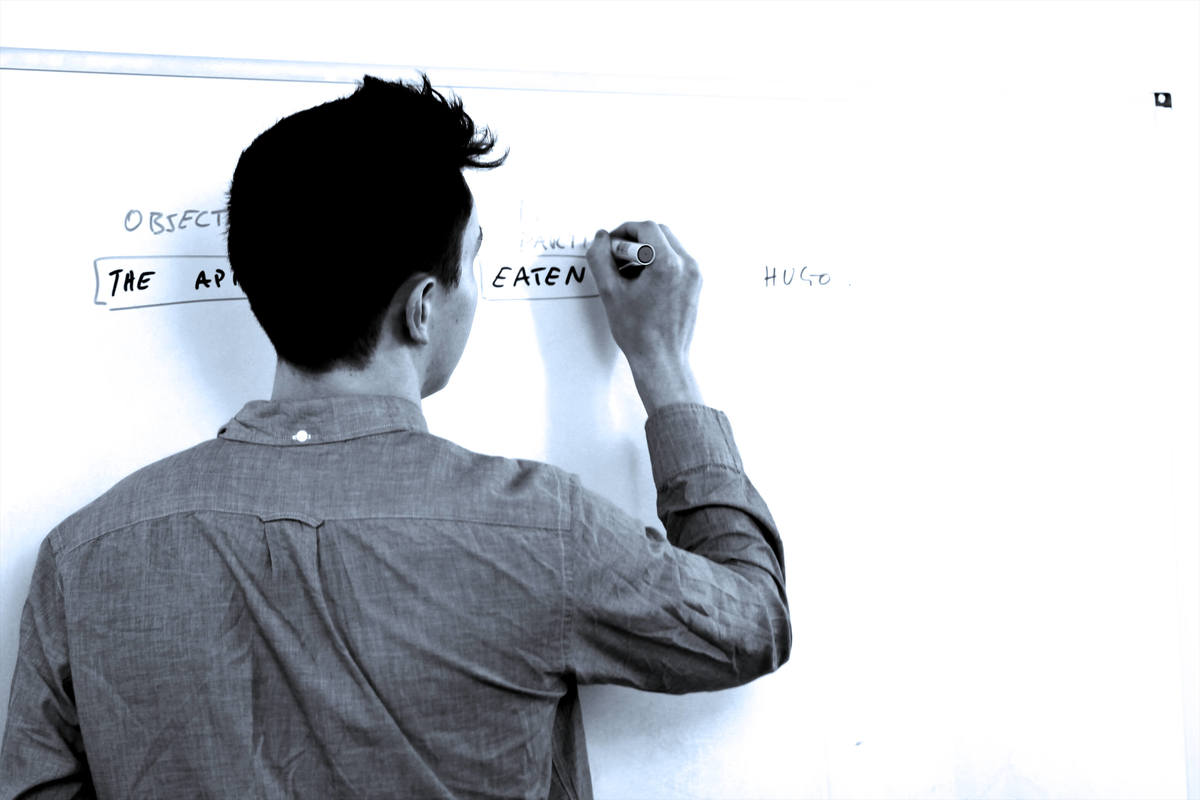Prepare for the Cambridge B2 First (FCE) exam
Tutorial™
Key points
Students train to gain experience and acquire the skills necessary to achieve a passing grade in their B2 First (FCE) exam.
Teachers coach students to achieve to the maximum of their potential, and set milestones and goals for each student, with constant evaluation. This sets the pace for each learner to surpass their academic expectations.
Students sit rehearsal tests under exam conditions. These are repeated as required to build confidence and familiarity with the exam.
Small class sizes allow for close tutor attention, which provides students with confidence and familiarity in the exam format.
Individual coaching allows the course to be tailored to meet the learner's precise needs, which provides the student with confidence and familiarity in the exam format.
All students who successfully complete this course are eligible for a course certificate.
Homework tasks are set daily to allow learners to reflect on and consolidate what they have learned in the day, as well as prepare for the next day.
Objectives of the stay
To familiarise the student with all parts of the exam, and to provide them with the confidence, skills, and strategies required to achieve an A grade in the B2 First (FCE) exam.
Cambridge B2 First (FCE) preparation
The Tutorial
The course comprises a mixture of lessons and workshops, and these combine to help students develop and practise the skills and abilities that are necessary not only for success in their exam, but also in order to operate effectively in English, communicating with both native and non-native speakers of English in a variety of contexts. Lessons and workshops focus on building the linguistic and life skills required to do this. Key skills covered include, spoken performance, critical reading, pronunciation, grammar and vocabulary building.
In the exam coaching lessons, the emphasis shifts to how students can best apply these skills to exam tasks in order to fully show their abilities as a B2 level user of English, to achieve high marks in each of the papers of the exam. The strategies that students are coached in will help them to navigate exam tasks with ease, allowing them to approach the test with confidence in their abilities.
Homework assignments and mock exams are used to monitor students’ progress, and to highlight any areas that may need more intensive work.
-
The fundamentals of flexibility: for Use of English
In order to pass the B2 First (FCE) exam, students need to demonstrate flexibility in their use of grammatical structures and vocabulary. This module focuses on lexical areas such as wordbuilding, to help students understand the fundamental building blocks of the English language. Grammatical structures such as relative clauses and reported speech are commonly tested at B2 level, and students will work to develop flexibility and accuracy in their use.
Articulate with confidence: for the spoken test
In this module, students focus on the main areas which are assessed in the spoken paper. They are coached in pronunciation, and areas of discourse management such as signposting and turn-taking. Tutors will also focus on interactive communication skills, and the accurate use of grammar and vocabulary appropriate for the exam. Confidence building techniques are also taught, which will help students approach the exam with a positive mindset.
Reading for success: for the reading paper
Students are introduced to a variety of text types including magazine articles, fiction, and non-fiction prose. Tutors work with students to develop their ability to comprehend these extended passages while under time pressure. Skills developed include: working out the meaning of unknown words, following an extended narrative, and discerning a writer’s opinion. Students are equipped with strategies to help them deal with the types of questions used in the B2 First (FCE) exam.
Fundamental listening skills: for the listening paper
Text types used in the B2 First (FCE) exam include radio interviews, everyday interactions, and presentations. In this module, students are familiarised with the relevant text types, and given strategies and practice to help them achieve success in this paper. They develop the skills to allow them to follow and understand spoken texts in a range of contexts, such as understanding the gist of a text, working out meaning from context, and listening for discourse markers.
Expressing oneself through writing: for the written paper
In this module, students are introduced to, and practise producing the types of texts that are required in the exam. These include essays, reviews, articles, and letters. Tutors highlight what makes a good piece of writing for each of the required genres, and students are given detailed and specific feedback in order to help them produce better texts. There is a focus on brainstorming, planning, organisation, and effective use of grammar and vocabulary. Timed writing practices also help students to maximise their performance in the written exam.
Expected outcomes
By the end of this course, the student is expected to be able to
- Express themselves clearly in both spoken and written English
- Demonstrate flexibility in their use of language
- Follow and comprehend a variety of written and spoken text types
- Structure a piece of long form writing in a number of styles
- Speak confidently with others in both one-to-one and two-to-one situations
Accommodation
Staying in a homestay gives participants the chance to be fully immersed into the local culture of the destination, whilst also being able to practise the language in a relaxed and natural setting. Many homestays have been welcoming our students into their homes for many years, offering their hospitality and expanding our students cultural horizons. Homestay arrivals are on the Sunday before the course begins, and departures are on the Saturday after the course ends.

The Experience of Living in Oxford
For almost a millennium Oxford has been a hub of learning and academia.
A small university city, Oxford is easily navigable and students are quickly able to settle in and feel comfortable. The city has a bustling centre, with numerous shops, restaurants and cafes, as well as opportunities to explore the rich history and culture through museums, galleries and theatres. The centre of the city is also close to several parks and open spaces, allowing students to spend time outdoors and enjoying nature.
Cultural Programme
Oxford is a hub of history, culture and academia, and the school exposes its students to the best of the city. With over 1000 years of recorded history there is a wealth of culture for students to discover as part of the school’s cultural programme, including world-class museums and galleries, being inspired by the colleges of the university and exploring the historic streets. Students are also able to experience unique local activities such as punting, alongside trips to historic pubs and theatre and cinema trips. The school also organises walking tours to familiarise students with the city and give them a deep understanding of its rich history.

.

.

.

.

.

.

.

.

.

.

.

.

.

.

.

.

.
Price includes
The price includes tuition, half-board accommodation in a homestay, and a certificate of achievement.
(Note: course fees do not include examination fees which will vary depending on the chosen exam and examination centre.)

